Setting and Maintaining Boundaries During the Holidays
This week, many Americans will celebrate Thanksgiving, a holiday symbolized by family, friends, and food. Also, traditionally, it is a day to express gratitude. Over the next several weeks, people will recognize other holidays, from Hanukkah to Christmas to Kwanzaa, and with these holidays, there may be additional family get-togethers.
The holidays can spark a range of emotions. There may be moments of happiness and joy, and also times of stress and anxiety. Some of that stress might be rooted in family conflict and the challenges of spending extended time with relatives – particularly if you feel as though they don’t accept who you are.
To help protect your mental health, set boundaries and communicate these personal limits to others. Making your expectations clear helps in two ways: it establishes what behavior you will accept from other people, and it establishes what behavior other people can expect from you.
There are five types of boundaries: physical, sexual, intellectual, emotional, and financial. For the sake of the holidays and the anticipated family gatherings, some of the physical and emotional boundaries that may be helpful include:
Hugs and Kisses – Touching might be uncomfortable for you, and therefore, you might want to share with others that you prefer they respect your personal space and avoid hugging and kissing you.
Face Masks – We are still at risk of getting or spreading COVID-19, so you may choose to mask up for indoor celebrations.
Conversation Topics – If there is a triggering topic or a subject you are uncomfortable talking about, consider letting people know what is “off limits” for you. If guests steer clear of a potentially uncomfortable topic, that might ease anxieties and lighten the mood.
Once boundaries are set, how do you uphold them? Some effective approaches include:
Use “I” Statements – When approaching difficult conversations, such as why you have created a specific boundary or explaining when someone has crossed your boundary, we suggest using “I” statements. For example, you could say, “I feel uncomfortable talking about this and would appreciate if you do not bring it up again.” Avoid using language about what the other person has done, as this can make the other person feel defensive and become closed off.
Enjoy Alone Time – Forced socialization can be emotionally and physically exhausting. It’s important to support yourself by finding time to decompress. This could be taking a walk, napping, reading a book, or listening to music on your own.
Use Your Support System – Will there be someone with you who you trust and can provide mutual support? If so, lean on this person. If not, use other support systems that might be a call or text away, such as friends, a family member, crisis counselor, sponsor, or the National Runaway Safeline.
The National Runaway Safeline is here to help. Each year, NRS connects thousands of young people with critical resources and provides non-directive, non-judgmental support. Call or chat anytime, 24/7. You are not alone.




